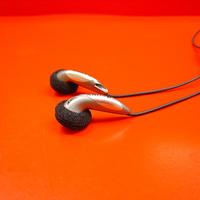新年 到!
Das neue Jahr ist da!
It's the New Year!
¡El Año Nuevo ya está aquí!
La nouvelle année est arrivée !
Il nuovo anno è arrivato!
新年を迎えました!
새해가 밝았습니다!
O Ano Novo chegou!
Новый год наступил!
新年到!
新年 到 !
New Year is coming!
新年 到 !
New year is coming!
cslpod 全体同仁 在 这里 向 所有 的 朋友 们 恭贺 新春 、 祝 大家 新年快乐 !
all colleagues|all colleagues||||||||||||
All colleagues of cslpod are here to congratulate all friends on the Spring Festival and wish you a happy new year!
Tous les collègues de cslpod sont ici pour féliciter tous les amis à l'occasion du Nouvel An chinois et souhaiter à tous une bonne année !
今天 是 农历 一年 的 最后 一天 , 也 是 春节 前一天
Today is the last day of the lunar year and the day before the Spring Festival
因为 这 一天 常常 是 在 农历 的 腊月 三十 , 故又称 今天 为 年三十 。
||||||||the last month of the lunar calendar||therefore also known as|||New Year's Eve
Because this day is often in the twelfth lunar month of the lunar calendar, it is also called today as the year thirty.
今天 晚上 叫 “ 除夕 ”, 意思 是 “ 除去 一年 中 陈旧 的 东西 为 新年新 事物 的 到来 做 准备 ”。
Calling "New Year's Eve" tonight means "to get rid of the old things of the year and prepare for the arrival of new things in the new year."
除夕 晚 , 人们 往往 通宵 不眠 , 叫 守岁 。
||||stay up all night|||staying up on New Year's Eve
On New Year's Eve, people tend to sleep all night and call them old.
“ 除夕 ” 是 人们 吃 、 喝 、 玩 、 乐 的 日子 。
"New Year's Eve" is a day when people eat, drink, play, and have fun.
北方 人包 饺子 , 南方人 做 年糕 。
Northerners make dumplings, and southerners make rice cakes.
水饺 形似 “ 元宝 ”, 年糕 音似 “ 年 高 ”, 都 是 吉祥如意 的 好 兆头 。
||gold ingot||||||||||omen
The dumplings are shaped like "Yuan Bao", and the rice cakes sound like "years high", which are good signs of good luck.
除夕之夜 , 全家人 在 一起 吃 “ 团圆饭 ”, 有 一家人 团聚 过年 的 味道 。
|||||reunion dinner|||family reunion|||
On New Year's Eve, the whole family eats "reunion dinner" together, and there is a family reunion for the New Year.
吃 团圆饭 时 , 桌上 的 “ 鱼 ” 是 不能 动 的 , 因为 这鱼 代表 “ 富裕 ” 和 “ 年年有余 ”
When eating a reunion dinner, the "fish" on the table cannot be moved, because this fish represents "rich" and "more than a year"
象征 来 年 的 “ 财富 与 幸运 ”, 它 属于 一种 装饰 , 是 碰 不得 的 。
symbol||||||||||decoration||touch||
It symbolizes the “wealth and luck” of the coming year. It belongs to a kind of decoration and cannot be touched.
除夕 的 高潮 是 年 饭后 长辈 发 “ 压岁钱 ”。
||||||||lucky money
The climax of New Year's Eve is when the elders send out "New Year's Money" after dinner.
接着就是 张贴 春联 和 门神 , 并 关上 大门 。
|put up|Spring couplets||door gods|||
Then post the Spring Festival couplets and the door god, and close the door.
到 初一 的 早上 才 开门 “ 接财神 ”。
It was only in the morning of the first day that the door was opened.
接下来 就是 全家人 守岁 到 凌晨 。
|||||midnight
The next step is for the whole family to stay until the early hours of the morning.

